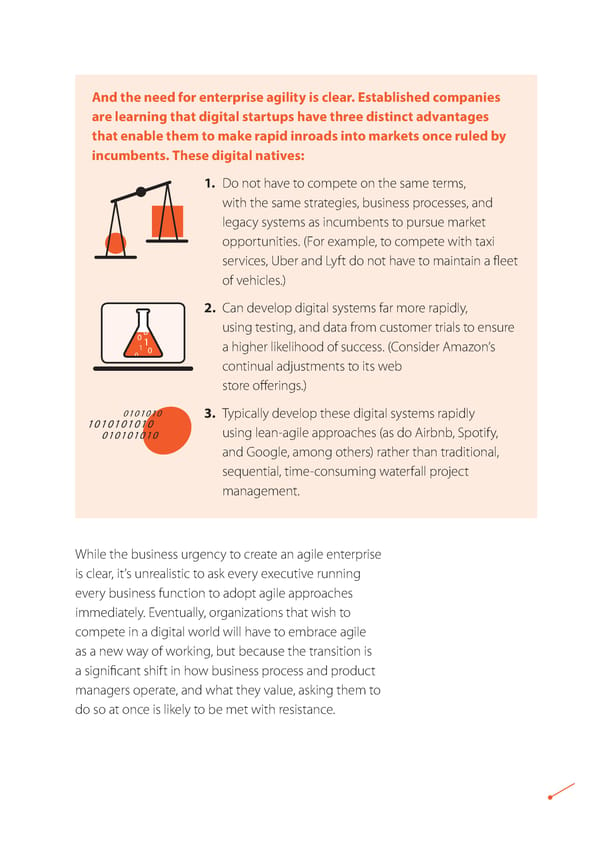And the need for enterprise agility is clear. Established companies are learning that digital startups have three distinct advantages that enable them to make rapid inroads into markets once ruled by incumbents. These digital natives: 1. Do not have to compete on the same terms, with the same strategies, business processes, and legacy systems as incumbents to pursue market opportunities. (For example, to compete with taxi services, Uber and Lyft do not have to maintain a fleet of vehicles.) 2. Can develop digital systems far more rapidly, 0 using testing, and data from customer trials to ensure 0 1 1 0 a higher likelihood of success. (Consider Amazon’s 0 continual adjustments to its web store offerings.) 0101010 3. Typically develop these digital systems rapidly 10101010101 using lean-agile approaches (as do Airbnb, Spotify, 010101010 and Google, among others) rather than traditional, sequential, time-consuming waterfall project management. While the business urgency to create an agile enterprise is clear, it’s unrealistic to ask every executive running every business function to adopt agile approaches immediately. Eventually, organizations that wish to compete in a digital world will have to embrace agile as a new way of working, but because the transition is a significant shift in how business process and product managers operate, and what they value, asking them to do so at once is likely to be met with resistance.
 The Essence of Agile Page 3 Page 5
The Essence of Agile Page 3 Page 5